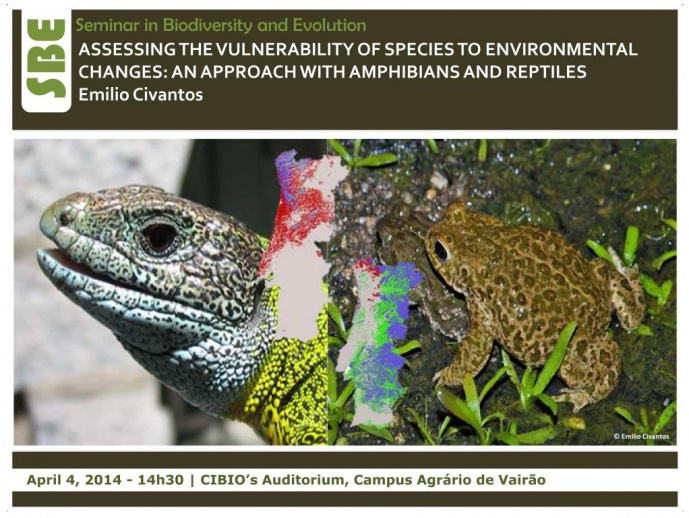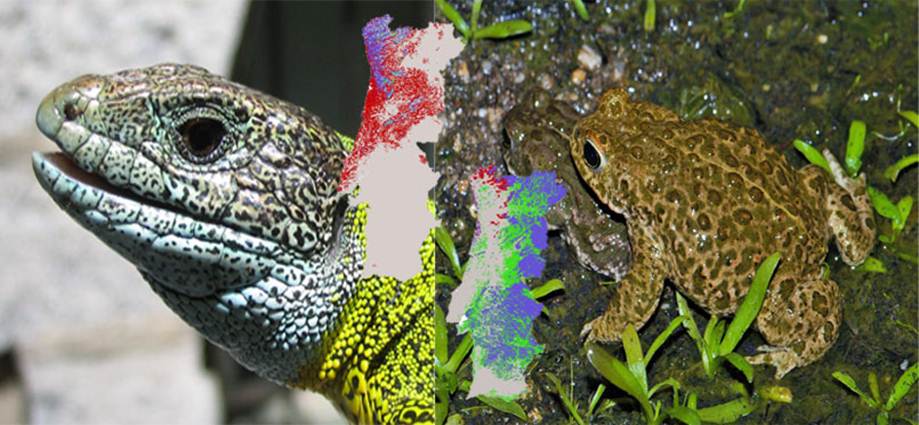ASSESSING THE VULNERABILITY OF SPECIES TO ENVIRONMENTAL CHANGES: AN APPROACH WITH AMPHIBIANS AND REPTILES

ASSESSING THE VULNERABILITY OF SPECIES TO ENVIRONMENTAL CHANGES: AN APPROACH WITH AMPHIBIANS AND REPTILES
Emilio Civantos (CIBIO-InBIO/UP) | April 4, 2014 - 14h30 | CIBIO’s Auditorium, Campus Agrário de Vairão

Climate and land use change is resulting in the geographic shifting of species’ suitable environmental conditions. Species might survive this rapid change by shifting their distributions, but in most cases patches of suitable habitats are separated by a matrix of uninhabitable space. Thus, successful shifting will depend on species dispersal abilities, the availability of suitable habitats and the connectivity between them. In this context, amphibians and reptiles are assumed to have low dispersal abilities, and therefore they are among the species that might be more affected by ongoing environmental change. Habitat suitability models coupled with connectivity analysis provide a valuable approach to assess potential migration corridors accounting for differential landscape permeability and thus allowing evaluate vulnerability to extinction or isolation. Here I describe the use of such a framework to assess the vulnerability of amphibians and reptiles to a rapid change in the distribution and spatial connectivity of suitable areas in Portugal.
Emilio Civantos is currently a post-doctoral researcher at the PRECOL group in CIBIO. His research interests cover a broad range of topics including evolutionary ecology, population biology, macroecology and conservation biology. His research aims to understand how biodiversity dynamics arise from ecological and evolutionary processes. His studies also focus on the assessment of global change effects on ecosystems, populations, species and communities. Much of his work is motivated by the need to quantify and forecast ecological and evolutionary dynamics under environmental change.
[Group Leader: João Honrado, Predictive Ecology]
Image credits: Emilio Civantos
